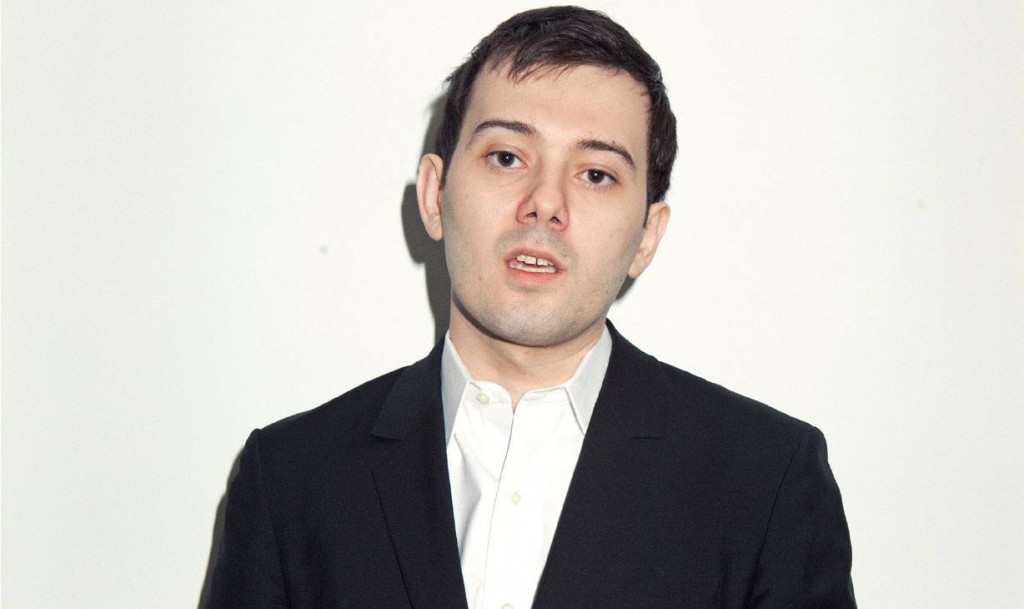
Over the weekend Turing Pharmaceuticals CEO Martin Shkreli raised the price of the malaria and toxoplasmosis drug Daraprim from $13.50 to $750 per pill, an action that outraged people nationwide and made them question why pharmaceutical companies have unilateral power to raise prices on the drugs on which so many of us depend.
Shkreli initially defended this bald-faced price gouging, saying the company would use the increased revenue to develop a “better, safer, more effective version” of Daraprim. The outrageousness of his position became apparent when even PhRMA, the lobbying arm of the very profitable pharmaceutical industry, tweeted that Turing “does not represent the values” of PhRMA’s members.
Shkreli backed down from the price increase (how much remains to be seen), but he sparked an overdue debate about the outrageous cost of life-saving medicines. Although Shkreli’s greed and insensitivity to suffering has rightly been condemned, he may have unintentionally made an argument for an increase in public funding for pharmaceutical research.
The problem with our drug-development system is that it puts a price tag on human suffering. Currently, big pharmaceutical companies are highly motivated to develop drugs for people who can pay for them. For people who cannot afford to pay, the drug that would cure their diseases or ease their suffering may never materialize.
By examining drug development through the lens of return on investment, biotech firms are evaluating human suffering in terms of its dollar value. Shkreli implied this when he said his company makes Daraprim in such small quantities that we should not worry about the suffering his price increase will cause, because only a few people would be affected.
The callousness of this thought process is chilling, and places us onto very slippery moral and ethical grounds. The United Nations considers health a human right, but when the firms that produce and control the drugs that keep people healthy view health as a moneymaking opportunity, situations like this are bound to arise.
However, money does not always trump human suffering. Take for example Mectizan, a drug developed in the 1970s and 80s by Merck to treat Onchocerciasis, also known as River Blindness, a parasitic infection that makes people go blind. The majority of people suffering from River Blindness live in Sub-Saharan Africa, and cannot afford to buy Mectizan. Merck decided to donate as much Mectizan as necessary to eliminate River Blindness, a commitment they maintain to this day. Mectizan shows how a pharmaceutical company concerned with the public’s well-being benefits everyone.
Publicly funded research could develop an alternative to Daraprim without having to raise the price of the drug it intends to replace, because its funding would not depend on market forces. Such research could also develop drugs to treat the so-called Neglected Tropical Diseases that create such immense suffering in the developing world, but which hold no interest for for-profit biotech companies.
If it seems strange that the U.S. would invest this much time and money into diseases that are primarily associated with distant countries, keep in mind that Neglected Tropical Diseases, including Chagas disease and toxoplasmosis, are endemic in the United States as well. We just haven’t funded programs to address them.
The U.S. government does spend some money on drug development. In 2015 the National Institutes of Health spent $657 million on collaborations with private pharmaceutical firms, but this effort was not to develop new drugs. Using our current grant-funded medical research model, the Centers for Disease Control or NIH could offer grants to research drugs that are vital for the public’s health yet do not interest for-profit companies. The government would own the patents on these drugs, the same way it owns data from the research it funds, protecting them from price gouging by greedy biotech firms. The government could subcontract the manufacturing and distribute the drugs through public hospitals, ensuring that avarice is kept out of the pricing process.
In an ironic twist, we can thank Shkreli for illuminating the disconnect between public health’s humane motives and biotech firms’ profit motives. Leaving drug development up to the market puts us at risk of prioritizing the health of people who can afford healthcare over the health of people who cannot. While a few politicians have called for regulations on drug prices, this would be treating the symptoms of the problem instead of the cause.
An increase in public funding for pharmaceutical research would address the cause of these problems. It would ensure that even unprofitable drugs might be developed. And while this would be an expensive undertaking – researchers estimates that each new compound the Food and Drug Administration approves costs $2.6 billion to develop – publicaly funded pharmaceutical research would ensure that people’s suffering is not judged by their net worth. And it could stop the Martin Shkrelis of the world from harming people’s lives by meddling with their medications.
Benjamin Spoer is a PhD student at NYU’s College of Global Public Health.
3 WAYS TO SHOW YOUR SUPPORT
- Log in to post comments













